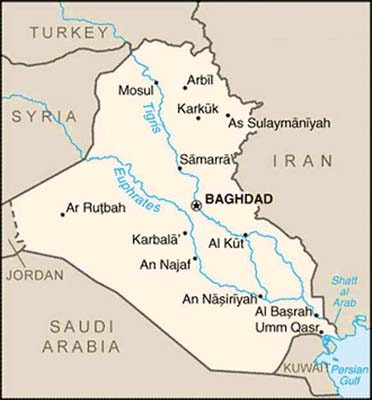Activists and UN: Iraqi women need more security
 Stockholm - Increased security for women and other vulnerable groups needs to be further strengthened in Iraq, Iraqi women organizations and UN representatives said Wednesday.
Stockholm - Increased security for women and other vulnerable groups needs to be further strengthened in Iraq, Iraqi women organizations and UN representatives said Wednesday.
The issues as well as problems like discrimination experienced by women were highlighted at a seminar on the eve of a UN-Iraq meeting aimed at discussing progress on reconciliation and nation-building in Iraq.
UN Special Representative to Iraq, Staffan de Mistura, told reporters that among the biggest problems in Iraq, impacting women and others, was security since it "affects all Iraqi people but among Iraqi people, especially women."
Dina Zorba, gender advisor for Iraq from the United Nations Development Fund for Women (UNIFEM), said in addition to security it was key to include women in decision-making.
Iraq and the United Nations were Thursday to co-chair a follow-up meeting hosted by Sweden of the International Compact for Iraq (ICI) that was launched a year ago at a summit in Egypt.
Dignataries expected to the summit included UN Secretary General Ban Ki-moon, Iraq's Prime Minister Nuri al-Maliki along with US Secretary of State Condoleezza Rice.
At a seminar Wednesday, representatives from the Iraqi Women Network, Iraqi al-Amal Association and the Women's Defence Rights Commission in Iraqi Kurdistan said non-governmental organizations and women's groups should "take part in the monitoring and evaluation process" at future follow-up meetings.
Hanna Edwar Busha, co-founder of the Iraqi Women Network that groups some 80 women NGOs, said that women and children suffered from lack of services like healthcare and schools.
"We can't speak about rule of law when many of our women suffer from killing, kidnapping, raping or prostitution," she said.
Swedish International Development Cooperation Minister Gunilla Carlsson said she was willing to push for a more active role for NGOs and other civil society groups in Iraq to monitor progress.
On her hopes for the conference, Carlsson told Deutsche Pressse- Agentur dpa she hoped to use her meetings to "strengthen respect for women," saying that "we know how vulnerable women and children are in this kind of post-conflict situation and when the rule of law does not offer protection."
Corruption was also "a plague" that threatened democracy, she said.
Earlier, Iraqi government spokesman Ali Aldabbagh told reporters at a briefing that Baghdad since the launch of the ICI process had made efforts to promote "national reconciliation, good governance, revenue sharing, building of institutions."
Efforts were underway to agree on a date for local elections that were part of plans to decentralize power and he also cited improvements in the overall security situation in Iraq.
A pending agreement on distribution of Iraq's oil wealth was another important plank in the country's future development since oil was the "only source of income," the spokesman said.
Al-Maliki and other Iraqi officials were Friday to hold bilateral meetings with Swedish officials and discuss the needs for investments in Iraq's infrastructure. (dpa)